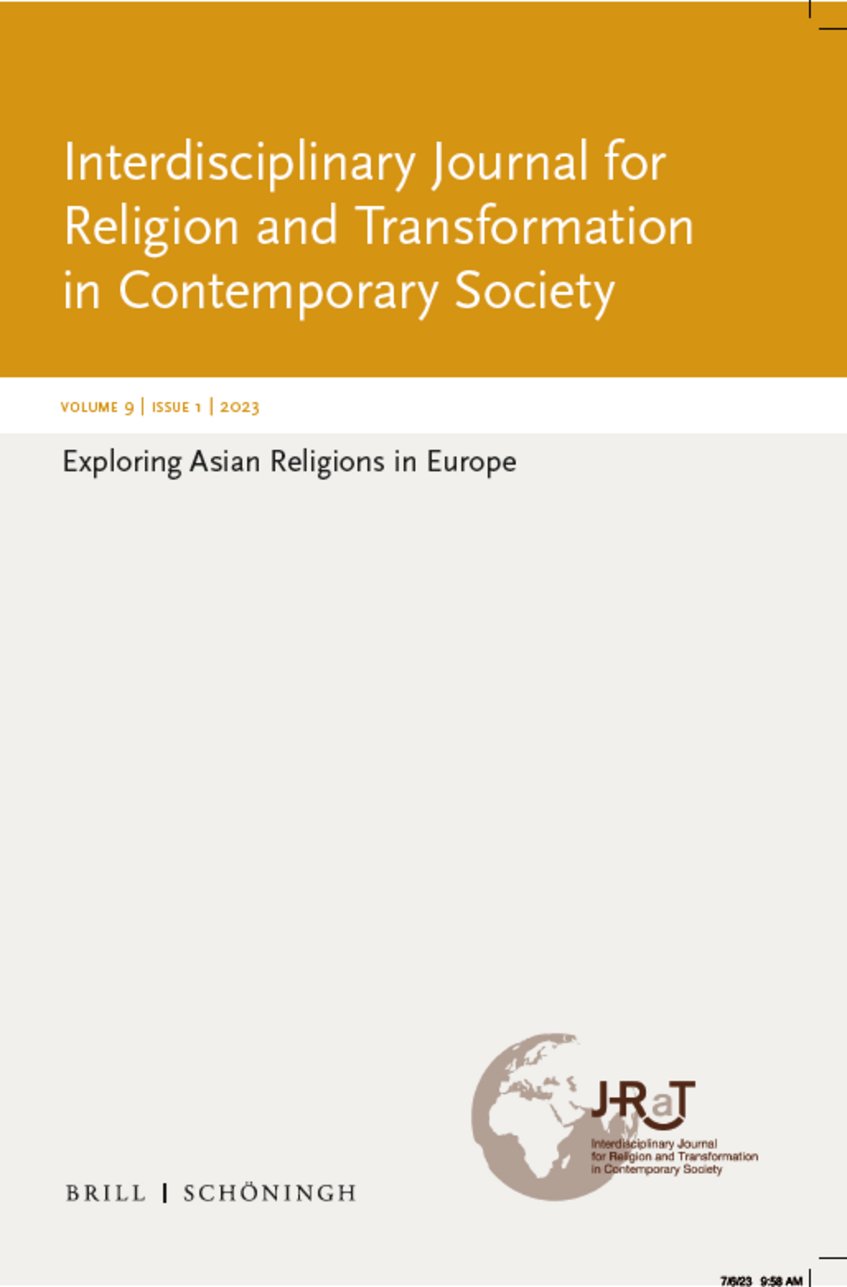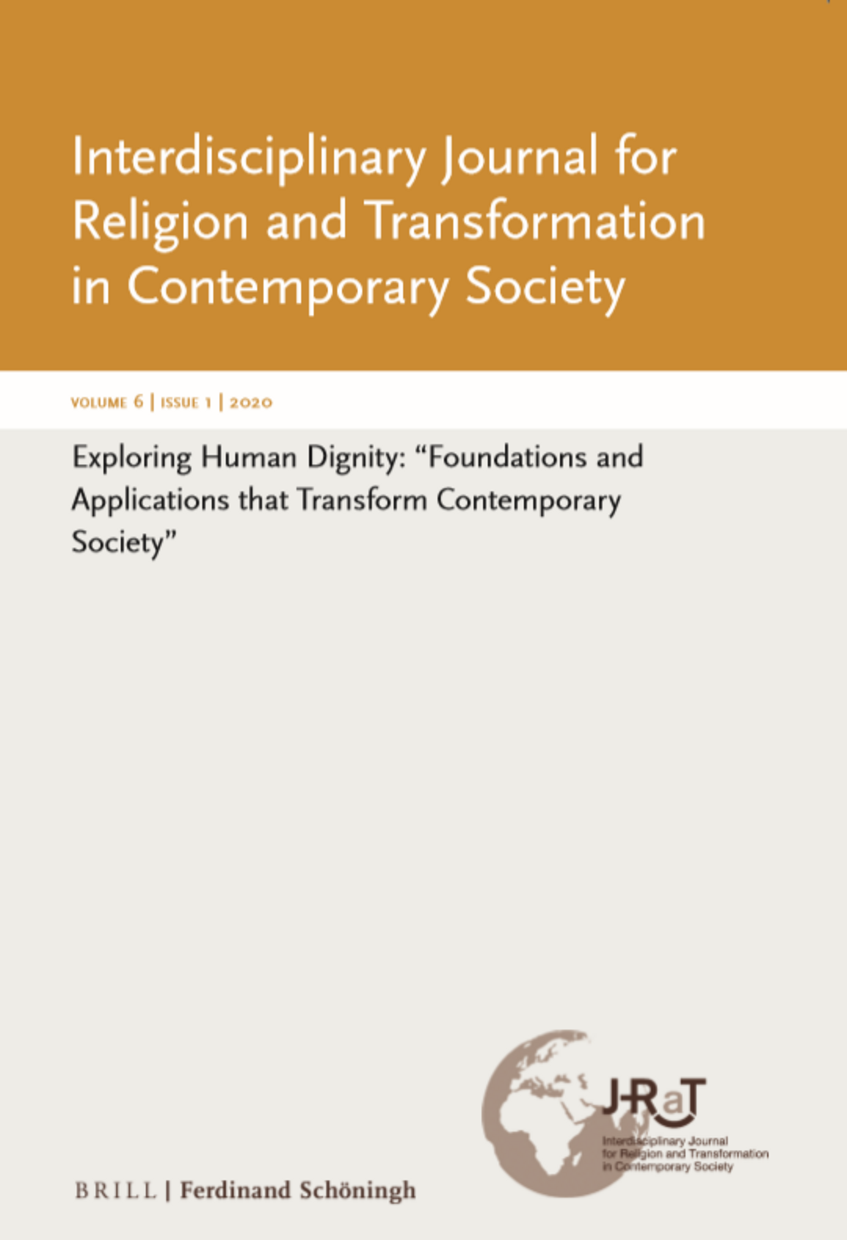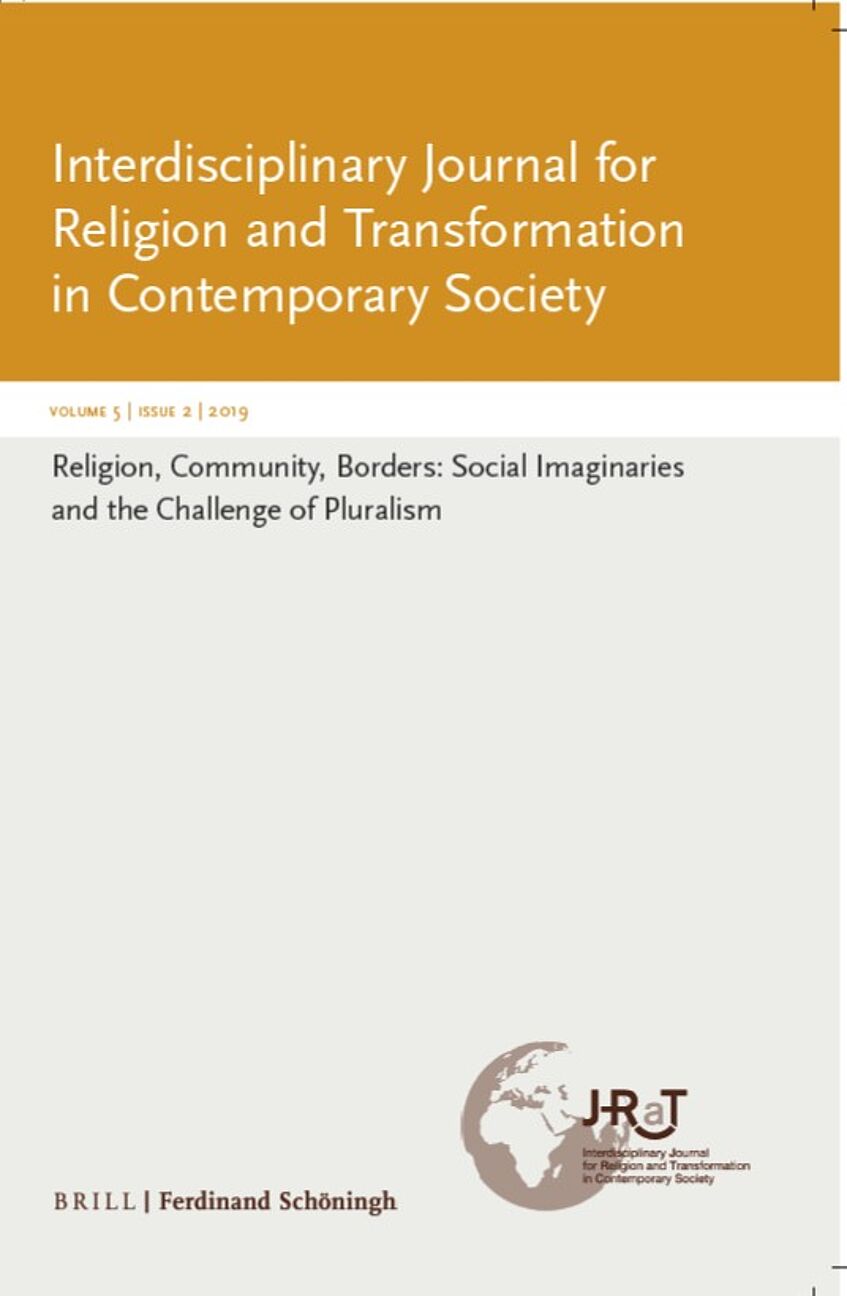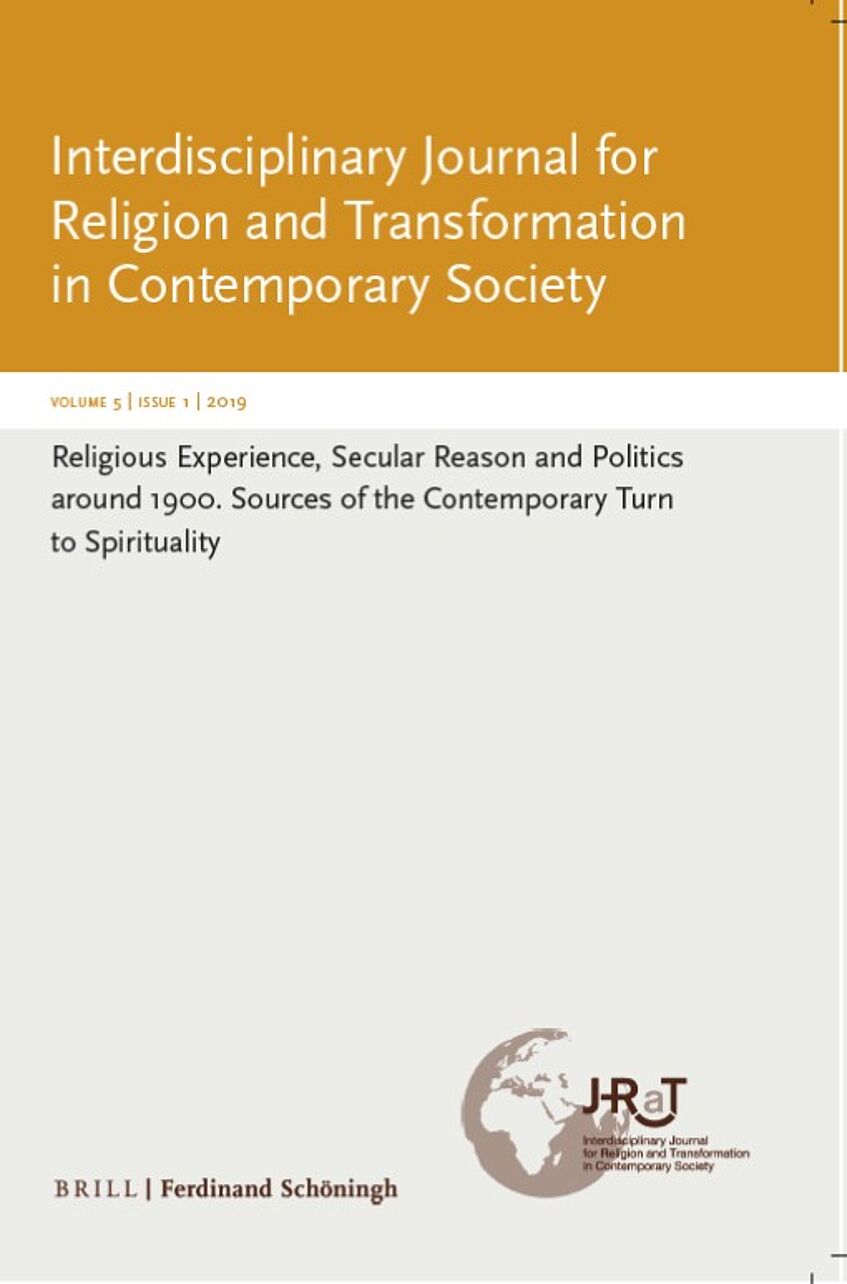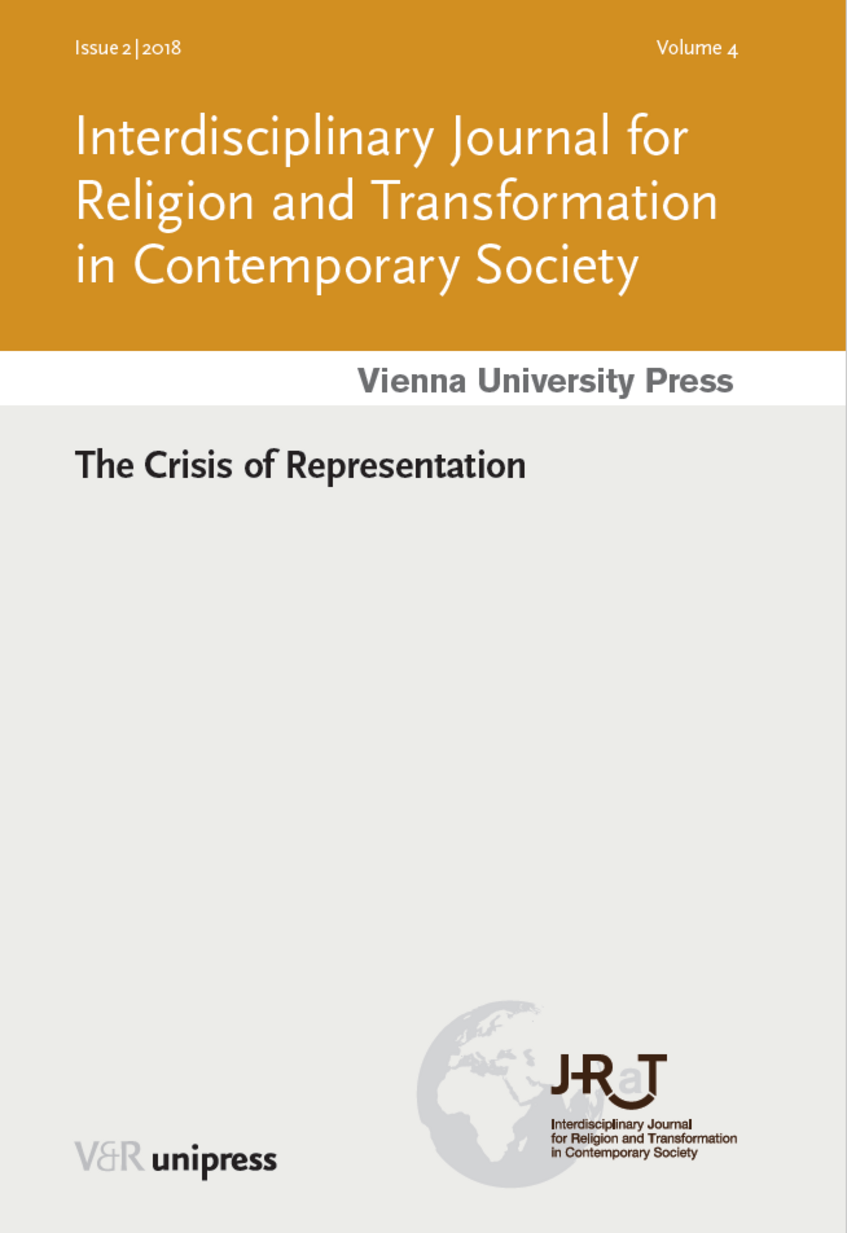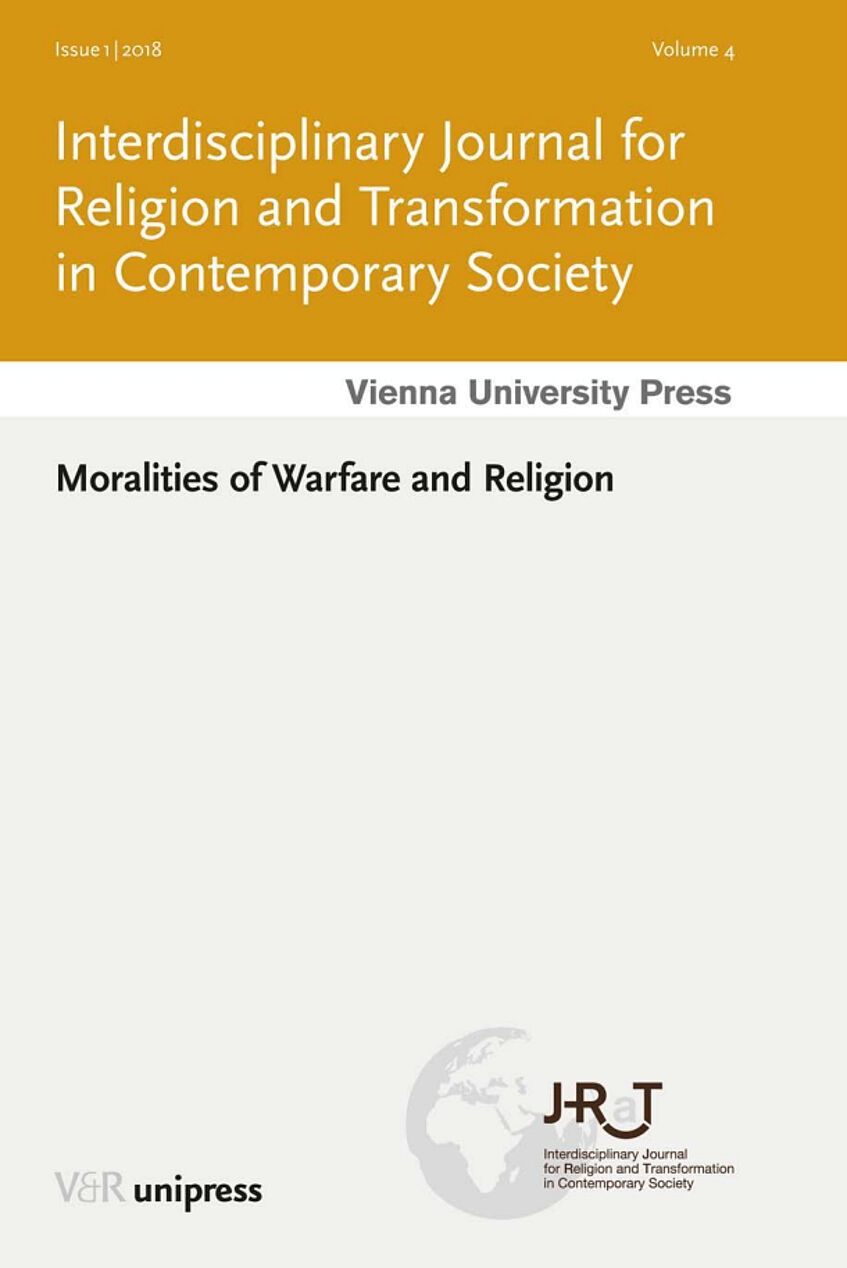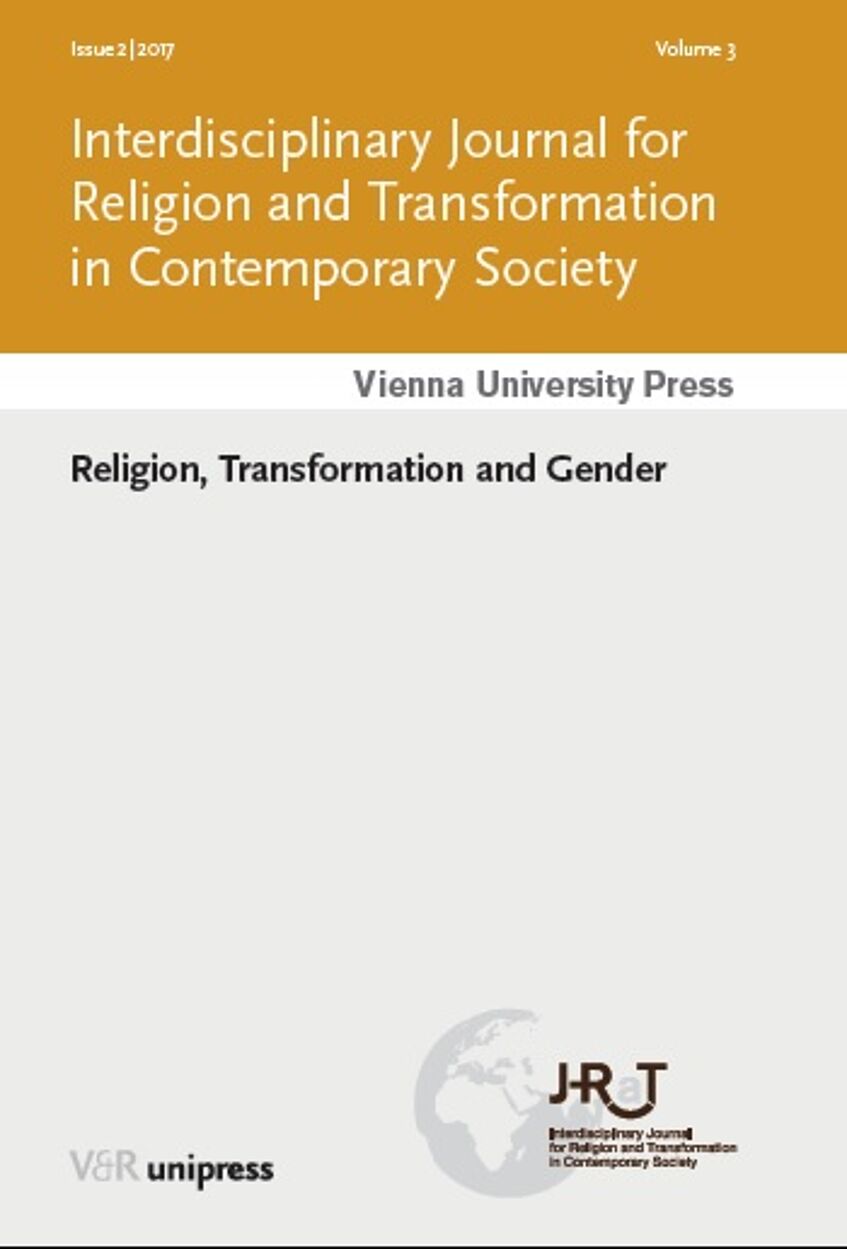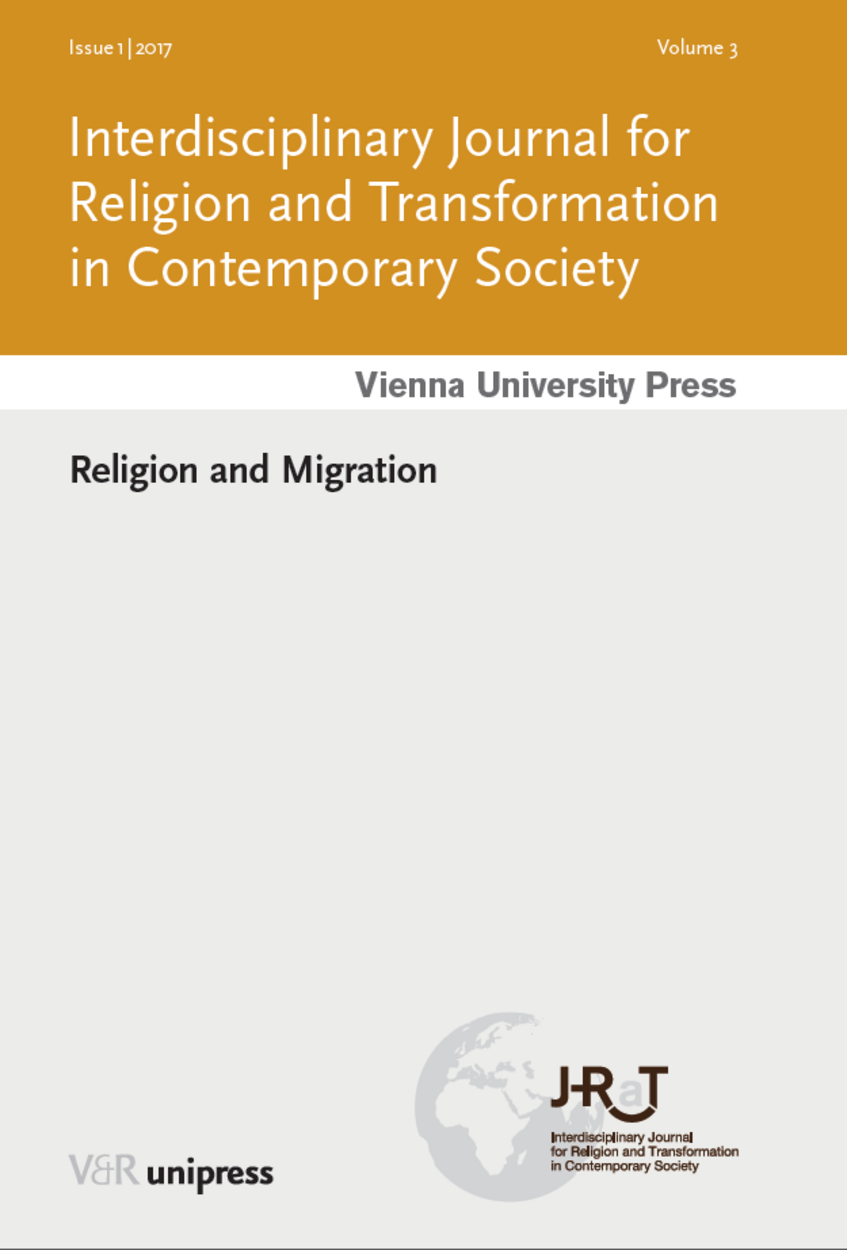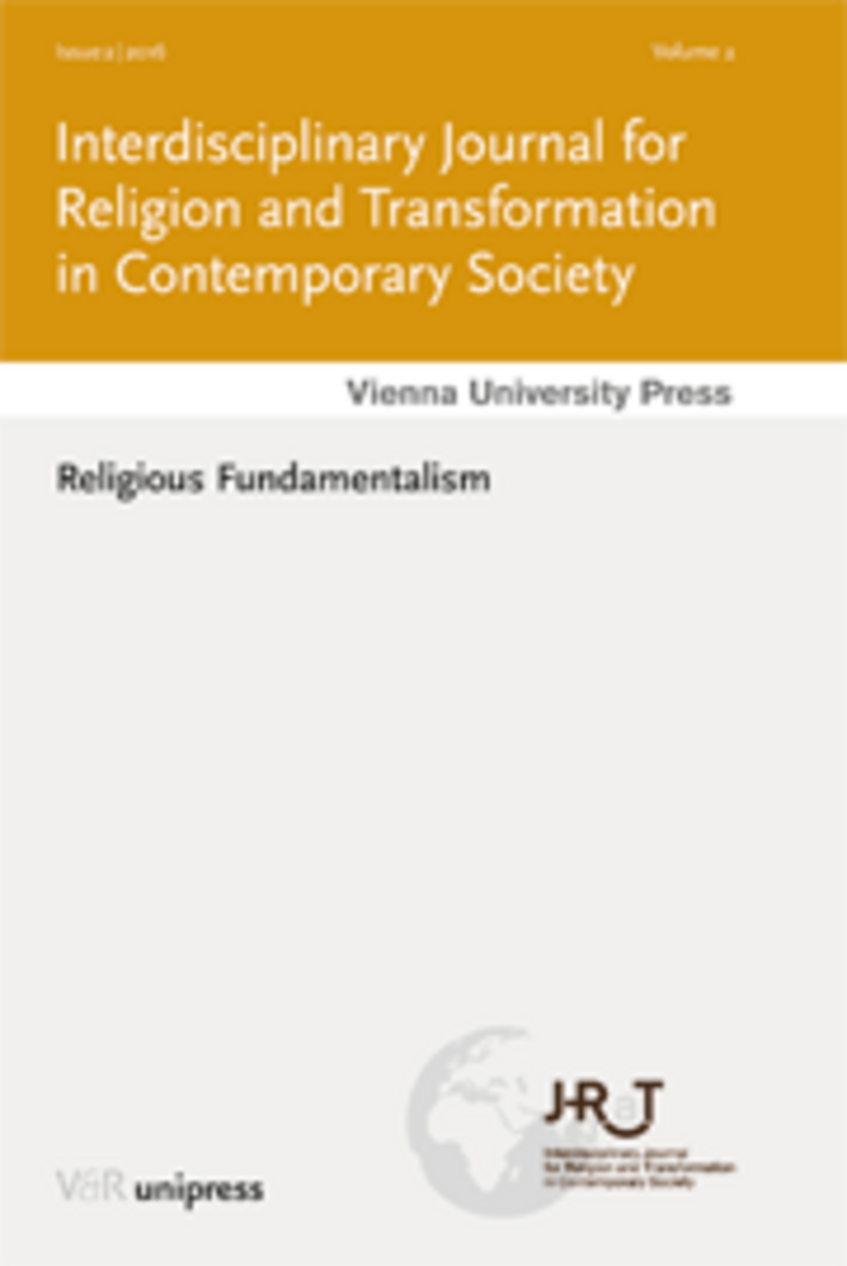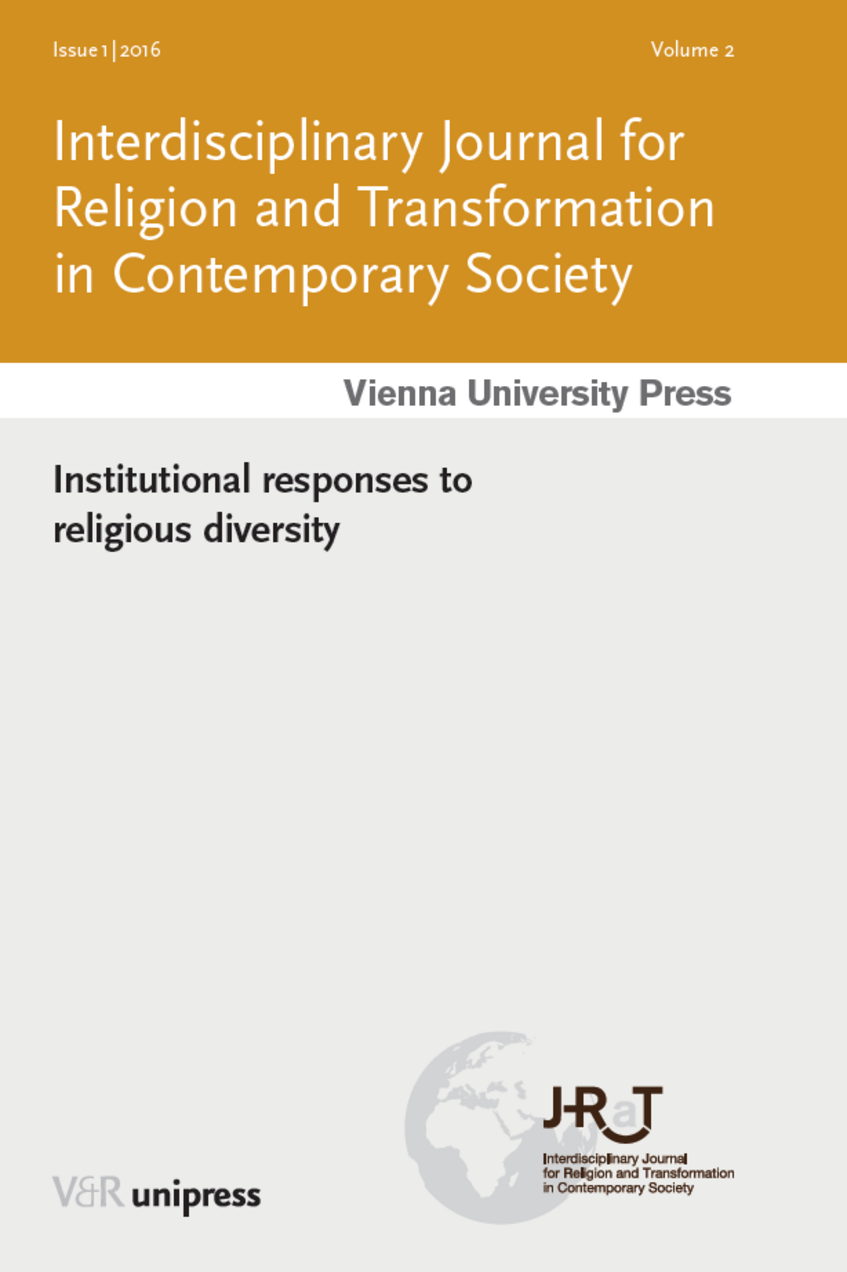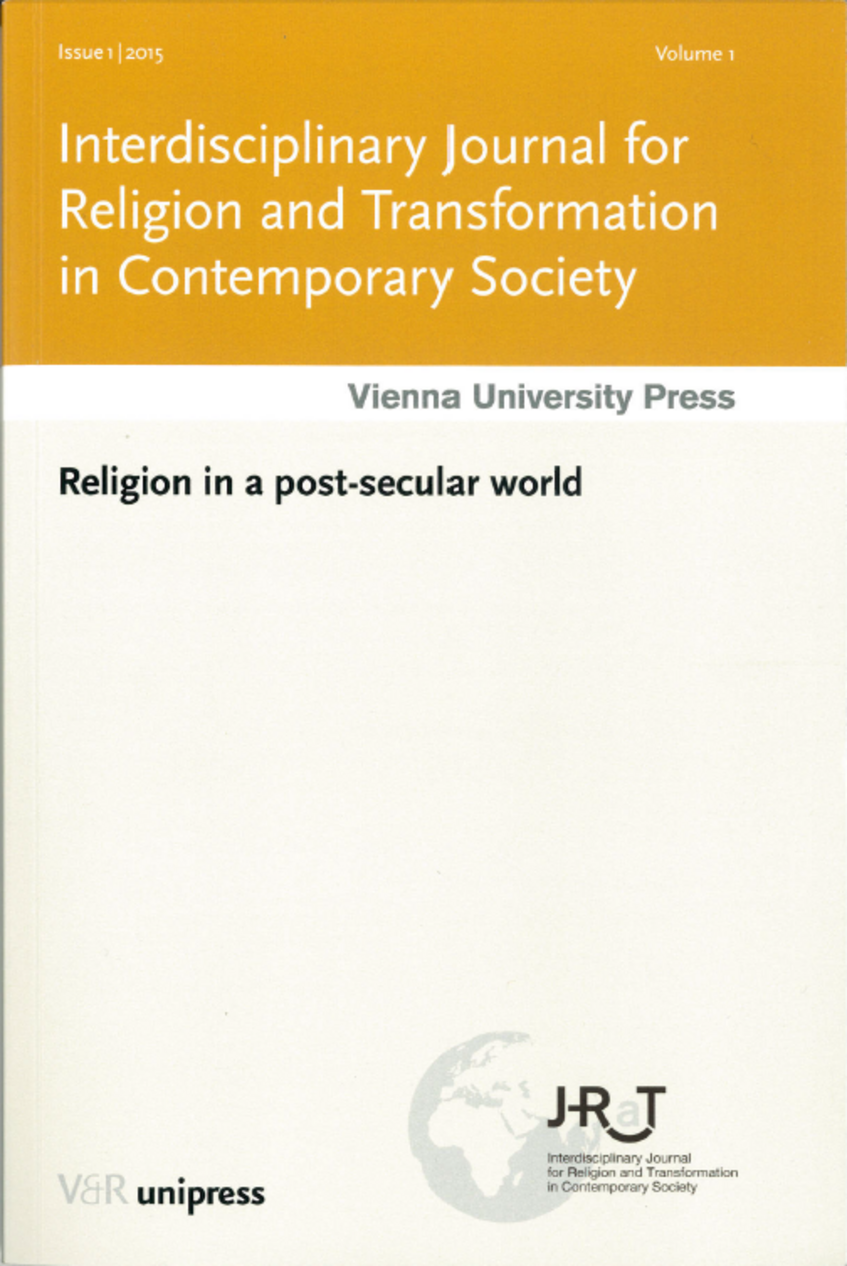
News
Success for JRAT: Journal edited by the research centre RaT reaches Q1 in the SCImago ranking
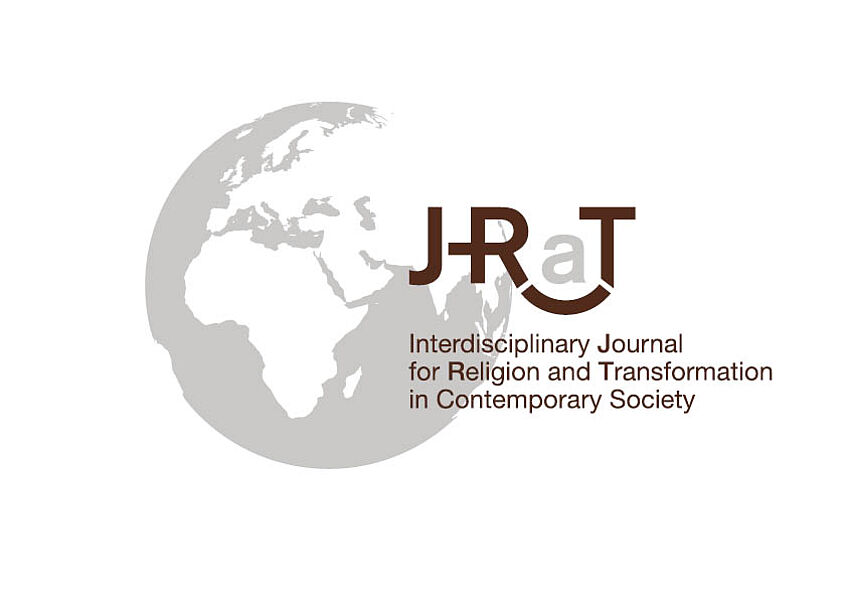
Success for JRAT: Journal edited by the research centre RaT reaches Q1 in the SCImago ranking
We are pleased to announce that the "Journal for Religion and Transformation in Contemporary Society", published by RaT in open access, has risen to the top quarter of the most cited journals in the new SCImago ranking in the field of Religious Studies.
This means that our journal has significantly improved on its previous, already very respectable, position in Q2.
This is a great success for our center and makes an important contribution to increasing the international visibility of theology and religious studies at the University of Vienna. The high level of performance in these subjects at our university was recently confirmed by the new QS ranking, in which the University of Vienna was ranked 21st in the field of "Theology, Divinity & Religious Studies". This represents an improvement of 7 compared to the previous year, which means that Theology and Religious Studies once again occupies the second-best position among all subjects represented at the University of Vienna!
About us
The Interdisciplinary Journal for Religion and Transformation in Contemporary Society – JRAT is an interdisciplinary, international, online open-access journal with a double-blind peer-review process. It was established in 2015 with the aim of promoting the research topics of the Research Centre “Religion and Transformation in Contemporary Society” (RaT, University of Vienna) in an international scope. Every issue has a distinct thematic focus which is approached from different disciplines.
The journal aims at investigating the contribution of religion to the cultural, political, juridical, and aesthetic dynamics in present-day pluralistic societies. Vice versa, it examines the influence of the contemporary processes of social transformation on religion and religious expressions. The mutual impact of religious and societal transformation processes requires the collaboration of different academic disciplines, which creates an interdisciplinary research space both for theologians of different religious and confessional traditions (Catholic, Orthodox, Protestant, Islamic, etc.), as well as for researchers in the field of Religious Studies, Sociology of Religion, Social Sciences, Law, Jewish Studies, Islamic Studies, Indology, Tibetan and Buddhist Studies, Philosophy and Pedagogy, etc.
The editors of JRAT are members of the board of the Research Centre RaT, the editorial board of the journal is composed of many renowned international scholars in the fields of study mentioned above.
Jakob Deibl is Director of the Editorial Office. Astrid Mattes is a further editor, Noemi Call and Marian Weingartshofer serve as editorial assistants.
- Contact: jrat@univie.ac.at
- Submitting an article: Articles can be submitted online through Editorial Manager. To submit an article, click here.
- Print: Print-on-demand is possible. Orders for printed journals can pe placed at the homepage of the publishing company.
- JRAT at Brill: JRAT Homepage at our publishing Company BRILL
- Call for papers: There is currently no open call for papers.
Attention: Due to the high amount of free contributions currently waiting to be published, significant delays are to be expected. Space in the upcoming issues up to and including 2024 is already exceeded.
Current Issues
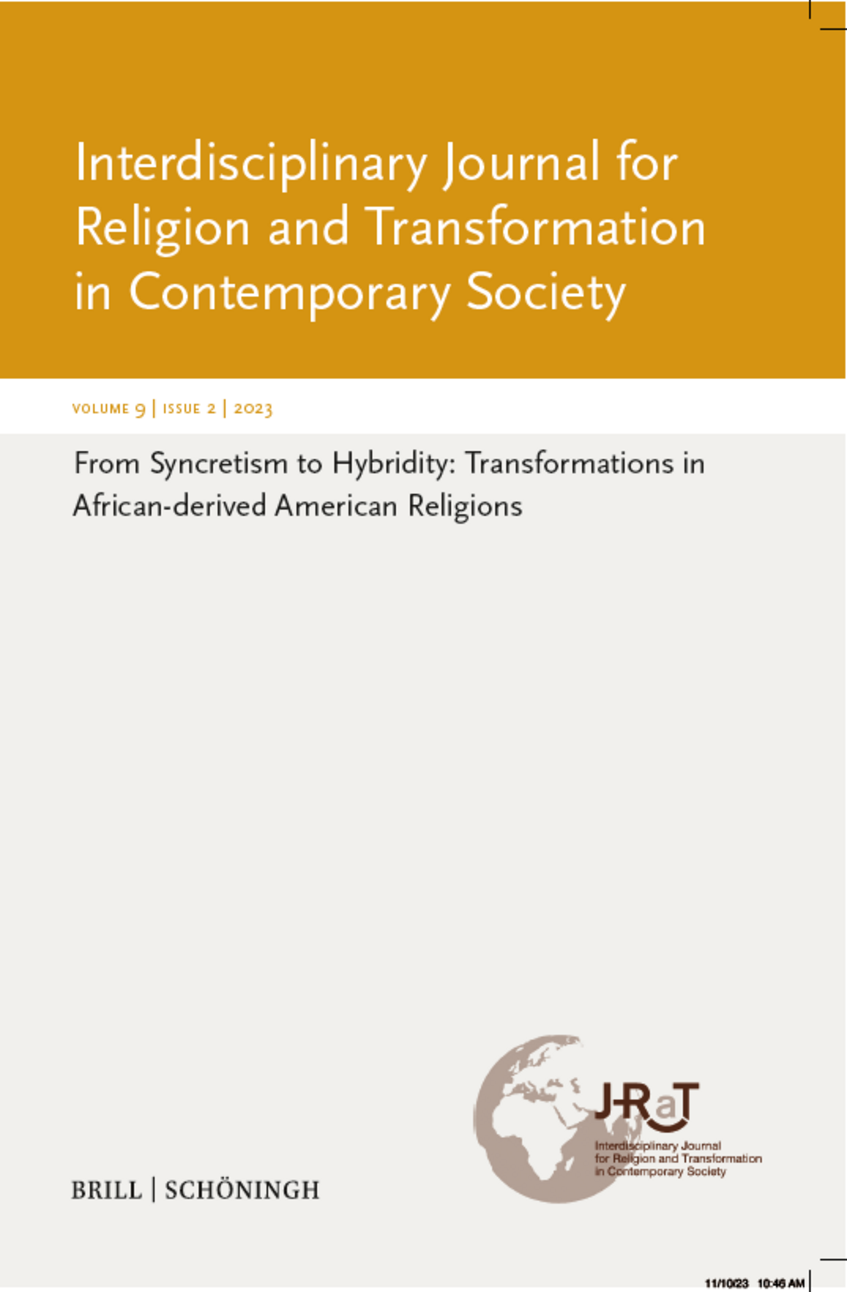
JRAT 9 (2/2023): From Syncretism to Hybridity: Transformations in African-derived American Religions
edited by Hans Gerald Hödl and Bettina Schmidt
In this volume, we bring together research on African derived Religions in Latin America and African American Religions in the USA. Theoretically, the concepts of hybridity and syncretism are discussed, in the introduction as well as in the papers included. The papers featured deal with Brazilian Umbanda, Cuban Santería, US African Black Hebrew Israelites, the Five Percenter movement (an offspring of the Nation of Islam), and one single person, Robert T. Browne, an activist in the Black Nationalist movement. In the religions covered – that are an outcome of the historical circumstances of the Trans-Atlantic Slave Trade – elements taken from West and Central African traditions, European Christianity, and Kardecian Spiritism blend to new forms of religious movements. This being the “fundamental” transformation of religion addressed here, some essays in the volume also look at the further transformation of those traditions in a “glocalized” world.
JRAT 9 (1/2023): Exploring Asian Religions in Europe
edited by Ugo Dessì and Lukas K. Pokorny
In the last fifty years there has been an increasing interest in alternative “spiritualities” in the European context, which have crystallised to a significant extent around “Eastern” religious forms. Whereas an important impulse has certainly been given in this respect by Orientalist views, the role played by missionaries in the transmission of Asian religious forms to Europe has been equally important. Still another major factor behind the transmission of “Eastern” religions to Europe is migration, which is becoming more and more relevant with the increasing number of immigrants from Asian countries. Against this general framework, the articles collected in this special issue attempt to shed more light on selected aspects of Asian religions in the European context, with particular attention to institutional, semi-institutional, and more informal practices, still relatively understudied areas (e.g., parts of Eastern Europe), and broad historical developments.
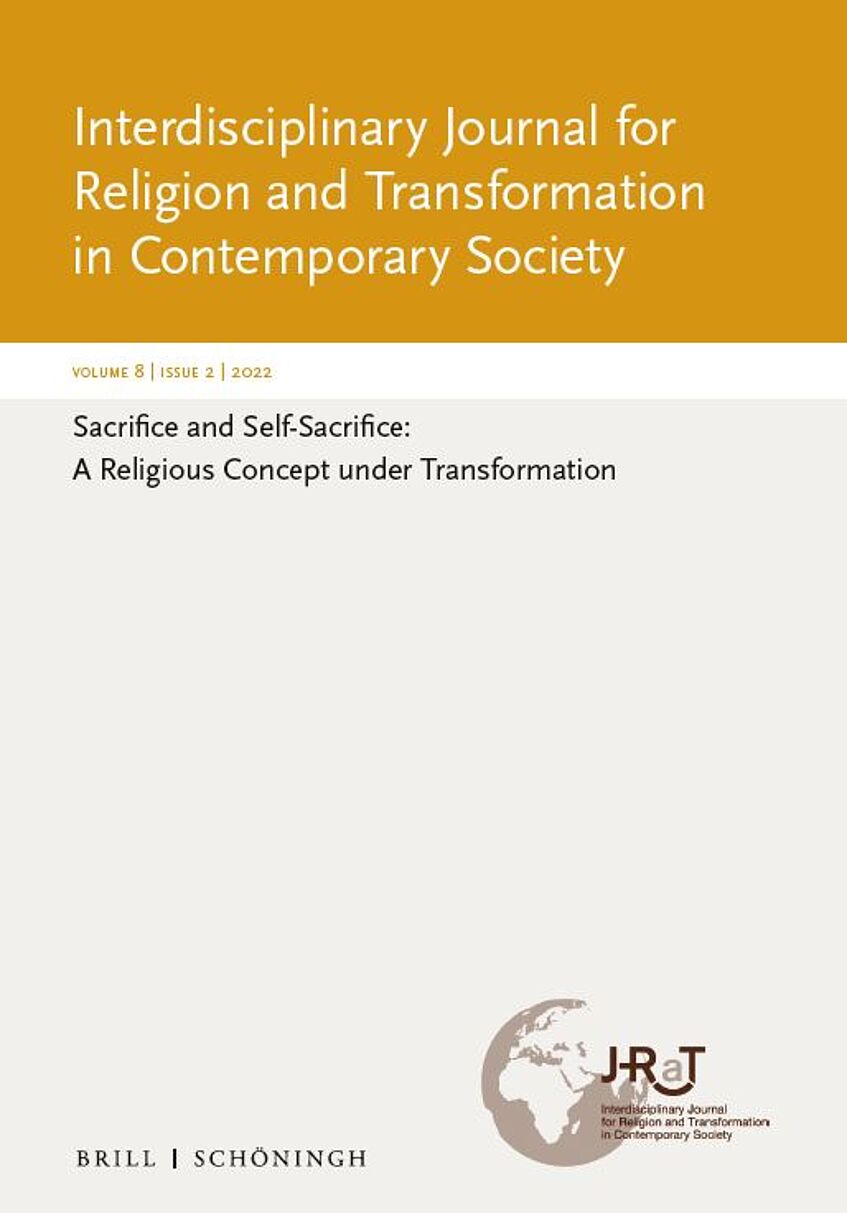
JRAT 8 (2/2022): Sacrifice and Self-Sacrifice: A Religious Concept under Transformation.
edited by Katerina Koci & Ludger Hagedorn
Sacrifice, originally a religious-cultic concept, has become highly secularized and used in various instances for different social phenomena. The current issue puts forward a selection of papers that offer insights into sacrifice and self-sacrifice and focus on the process of transformation of the sacrificial individual. Three main axes put the concrete papers into a dialogue with one another: first, there is the philosophical-theological and gender reflection of the experience of the paradigmatic sacrificial story of the western tradition, i.e., the Akedah (Gen 22); second, the existential-phenomenological interpretation of self-sacrifice in the secular world which nevertheless aims to reveal a higher good – Freedom, Love, or the Good; third, the gender and feminist reflection of the motherly sacrifice of childbirth both in the religious-cultic context and in the secular context which presents childbirth both as a moment of autonomy loss and submission and a moment of women self-emancipation.
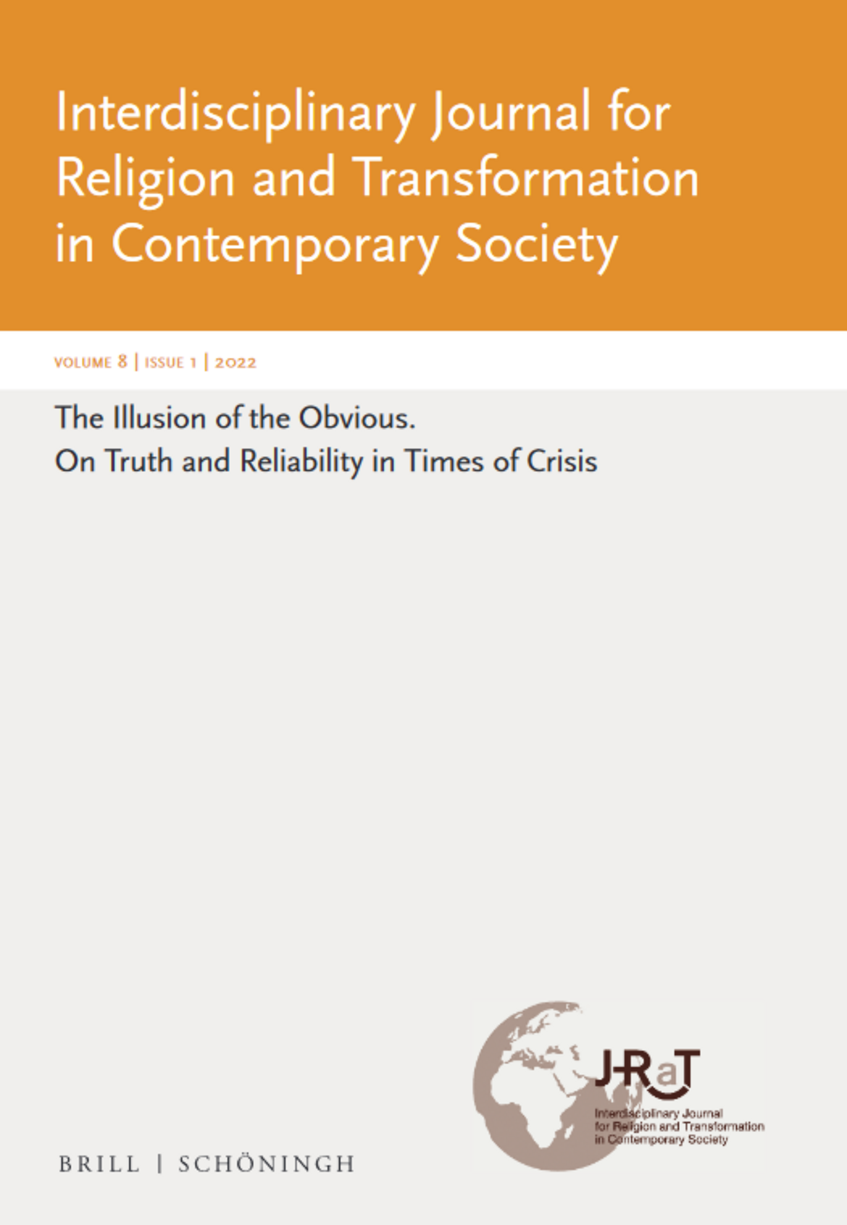
JRAT 8 (1/2022): The Illusion of the Obvious. On Truth and Reliability in Times of Crisis.
edited by Cornelia Richter
The introduction of the editor explains research context and research objectives of the topic, highlights the most important insights and demonstrates relations among the contributions collected in the volume. The papers, written by young and senior researchers, on the one hand, discuss aspects of truth and various modes of deception like insincerity, whitewashing, or bullshit, all of which set forth destructing forces and eroding democratic processes. On the other hand, the papers address phenomena of dissolving and eroding the reliability of collective efforts to maintain truth and sanctions on deception, especially when they are linked to dangerous reductionist movements and hermetic subgroups which systematically prevent the efforts of peacebuilding measures and make anti-democratic movements settle to an extent that endangers cohesion and collective identity within Europe.
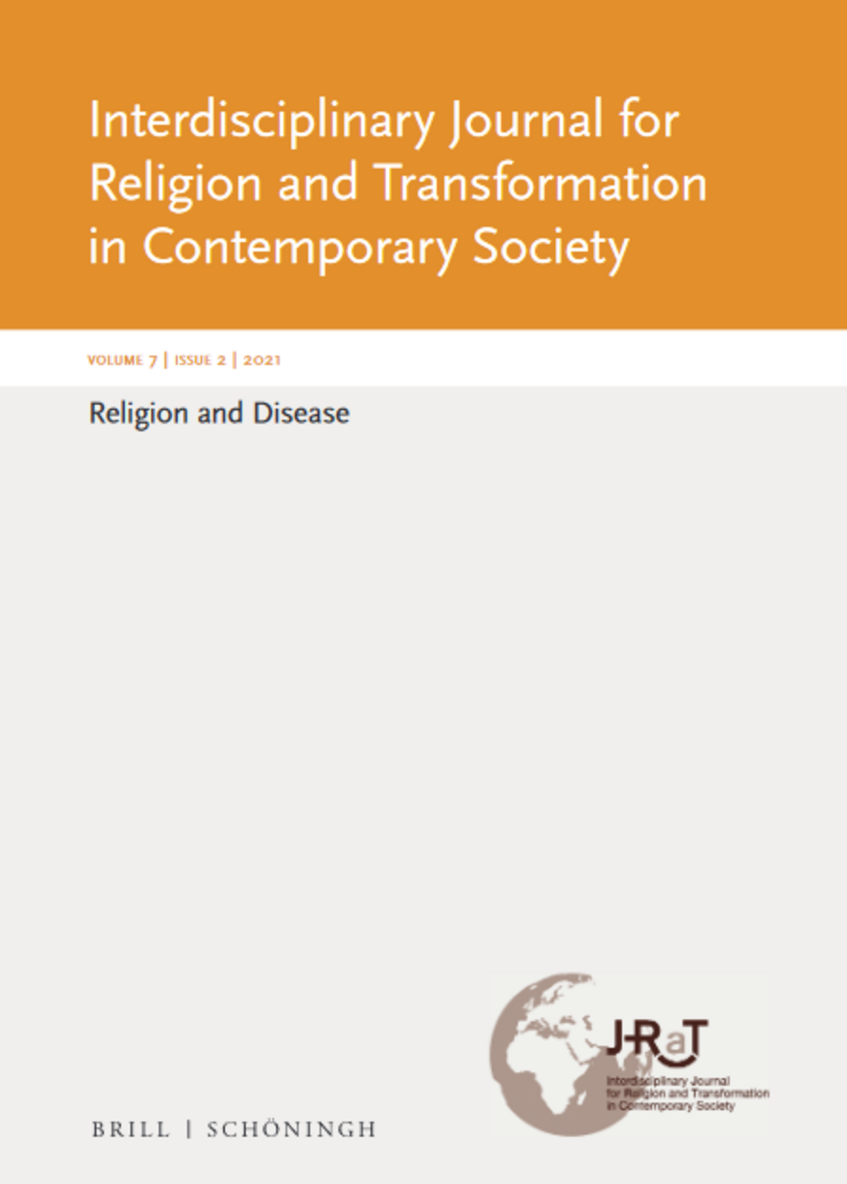
JRAT 7 (2/2021): Religion and Disease
edited by Rüdiger Lohlker
The contributions of this issue show an understanding of disease(s) and religion in a multifaceted way. Covering traditions of Christianity, Islam, Taoism, indigenous Indonesian people, fundamentalism, and secularism discourses allow for an approach to liminal situations related to diseases and healing and resilience towards the challenges these situations mean. Philosophical reflections, empirical research, theological discussions, studying ideas on sciences, and theoretical reflections on practical dimensions of resilience contribute to a stimulating mosaic of ideas.
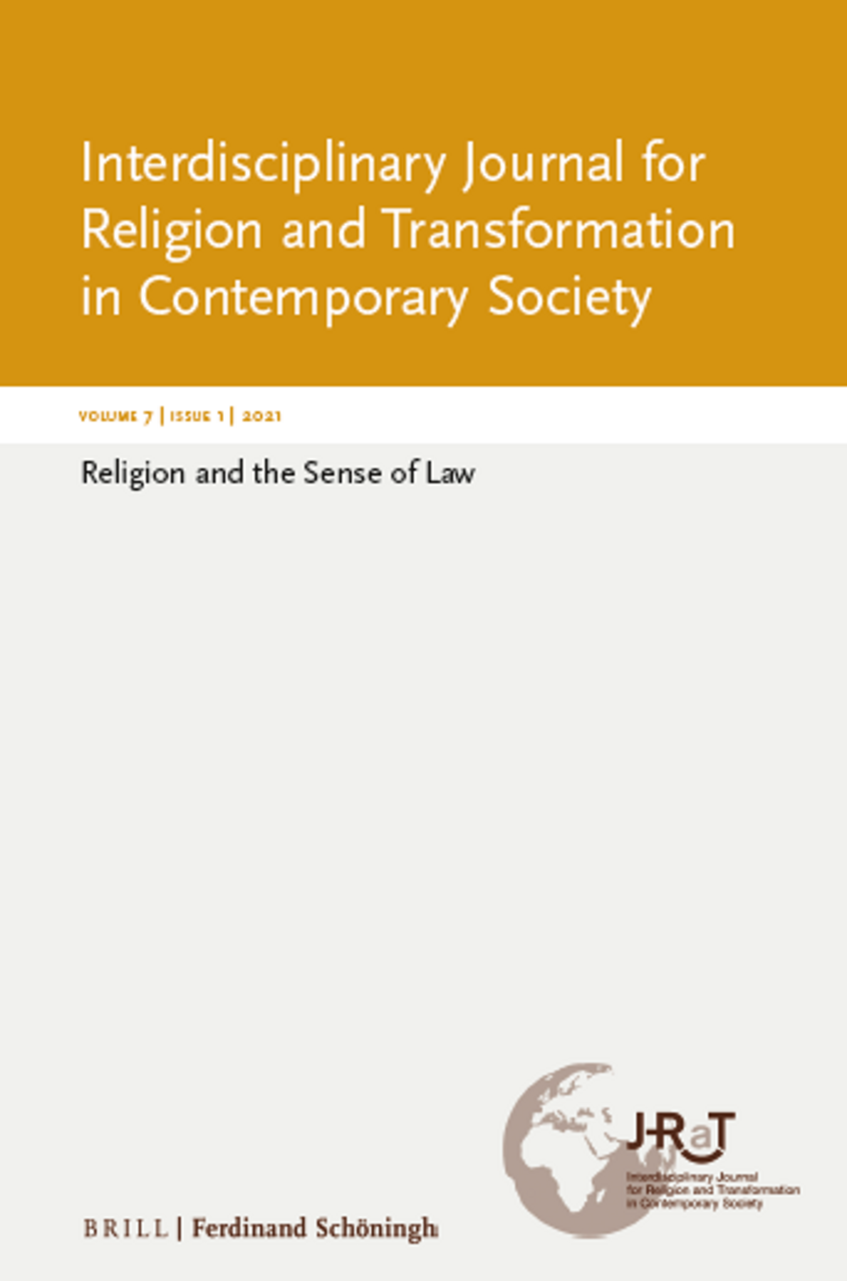
JRAT 7 (1/2021): Religion and the Sense of Law
edited by Stefan Hammer and Jakob Deibl
The issue reflects on concepts of law determined or impacted by various currents of Abrahamitic religious traditions. Major alternative approaches regarding the status of revelation as a source of law are being addressed. Two basic types of religious approach can be distinguished: one embracing the idea of divine revelation containing prescriptions which are to be connected to and implemented in human legal and political reasoning, and another one absconding the divine from earthly political and legal paradigms in order to permeate them with relativizing spirituality. The various contributions explore the historical development of relevant strands of religious thought as well as the way in which they articulate themselves in the present-day diversity of a secularized and globalized environment.
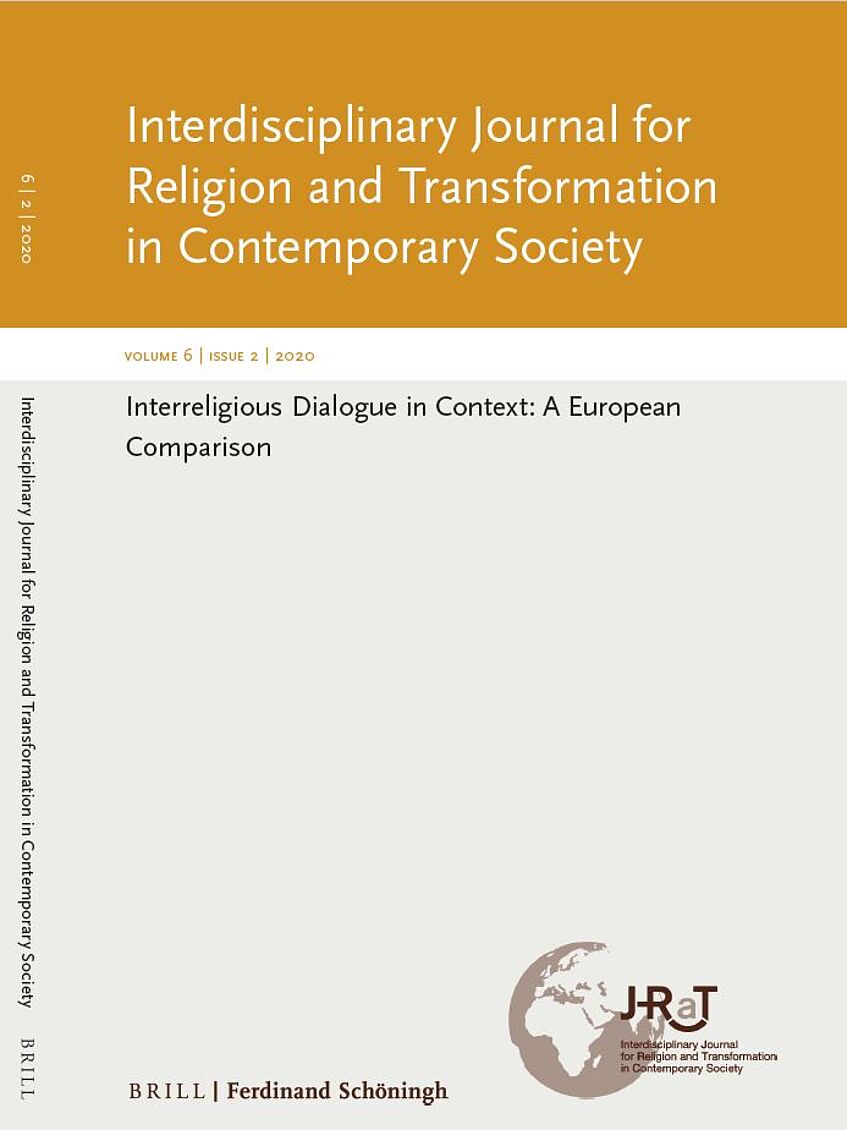
JRAT 6 (2/2020): Interreligious Dialogue in Context: A European Perspective
edited by Karsten Lehmann
The article sketches the overall layout of the thematic issue of the ‘Journal of Religion and Transformation in Contemporary Societies (JRAT)’ on Interreligious Dialogue (IRD) in context. It argues that an analysis of Interreligious Dialogue-activities in their socio-cultural contexts helps to counterbalance the long-standing individualistic bias of IRD-research. First, it presents a systematic description of the present state of the art that distinguishes two strands of IRD-research. Second, it argues for a European comparison, based upon the most recent findings from the ‘SMRE – Swiss Metadatabase of Religious Affiliation in Europe’. The article closes with references to the structure of the present volume of JRAT to facilitate such a comparison.
edited by Nenad Polgar, Sigrid Müller, Katharina Mairinger and Todd A. Salzman
Two generations after the proclamation of the Universal Declaration of Human Rights, there is a need to evaluate what has been achieved when it comes to discussions on human dignity and human rights in terms of their foundations and applications. This issue of the Interdisciplinary Journal for Religion and Transformation in Contemporary Society addresses this task from the point of view of theological ethics and religious studies. Part One of this collection provides a solid foundation for defining human dignity and promoting human rights. Part Two demonstrates how this foundation can be applied to current and pressing ethical, legal, and theological issues confronting humanity, by addressing four exemplary issues (homosexuality, gender, migrants, and climate change). Combined, these essays point a way forward for the ongoing development of a comprehensive, comprehensible, consistent, and credible definition of human dignity and human rights and their role in addressing ongoing ethical, legal, and theological issues.
JRAT 5 (2/2019): Religion, Community, Borders: Social Imaginaries and the Challenge of Pluralism
edited by Laurens ten Kate and Ernst van den Hemel
The 21st century so far has turned out to be a time of crossroads. On the one hand, neoliberal globalization continues to shape the way in which people, thoughts, ideas flow and interconnect. On the other hand, nationally or culturally oriented identifications are on the rise. This issue of the Journal for Religion and Transformation addresses how these junctions between the liquidity and the tenacity of borders determine the way in which the present and its “sense” is imagined, with a particular emphasis on the role of religious and secular worldviews. The issue consists of ten articles; each of them departs from the framework of social imaginaries theory, and explores how the current interdisciplinary scholarship on social imaginaries, whether theoretical or empirical, may contribute to the study of this double bind of fluid as well as solid borders that seems to be one of the hallmarks of our era. The aim of the authors is to reboot the conceptual understanding of borders and of the crises they bring about. In particular, the authors focus on the way in which borders are imagined as outlines of old and new communities, as these communities feed on religious and secular worldview traditions.
This issue was published in collaboration with the international consortium SIMAGINE (based at the University of Humanistic Studies, Utrecht; members from the Universities of Cambridge, Boulder, Bloemfontein, Amsterdam, Brussels, Vienna).
edited by Hans Schelkshorn and Herman Westerink
The emergence of a scholarly and popular interest in religious experience, spirituality and mysticism around 1900 plays a crucial role in the further transformations in religion in the twentieth century and in contemporary Western and non-Western societies. This volume contains philosophical reflections on the emergence of these new constellations, discourses and practices. The ‘rediscovery’ of the various spiritual and mystical sources and traditions, and the turn towards the individual’s religious experiences, can be situated against the background of a growing critique of global scientific positivism and the rise of secular (atheistic, Marxist) philosophies. The turn to spirituality and mysticism is associated with political projects of anti-imperialist emancipation in for example, India, the Islamic countries, Russia and Latin-America. Through philosophical inquiries into key authors such as Bergson, Blondel, James, Heidegger, Bremond, Weil, Solov’ëv, Rodó, Iqbal and Vivekenanda, this volume presents a comprehensive perspective on the fundamental issues and discussions that inspired the turn to spirituality in a modern era of secular reason.
JRAT 4 (2/2018): The Crisis of Representation
edited by Kurt Appel and Carl Raschke
The expression "Crisis of Representation", which received great attention through M. Foucault, is the focus of this issue. The crisis is considered not only in political and economic terms, but also in cultural, aesthetic and religious terms. The study of this complex and multi-layered phenomenon requires an interdisciplinary approach. The authors' contributions come from the fields of philosophy and theology as well as from social, religious and Islamic studies. In an interdisciplinary way, they focus on the political, religious, social and economic dimensions of the crisis and refer to current philosophical and postcolonial debates. On the one hand, the contributions of the volume aim at an investigation of the essence of the crisis of representation in order to give it a theoretical framework; on the other hand, they understand the crisis of representation as a category that seems suitable for investigating religious and social transformations.
JRAT 4 (1/2018): Moralities of Warfare and Religion
edited by Angela Kallhoff and Thomas Schulte-Umberg
The contributions to the sixth issue of the Interdisciplinary Journal for Religion and Transformation in Contemporary Society (JRAT) discuss the topic of war morality and religion from a long-term historical perspective. The issue brings together scholars from different disciplines - history, theology, literary studies, philosophy and sociology - to present the latest findings on war theory and the experience of war, especially with regard to religion. By focusing on the commitment of combatants and the commitment to strengthen peace, the issue offers a fresh and still unusual perspective. It will stimulate further discussion on moral commitment in the ethics of war, the role of religion in war and the prospects for an ethics of peace. Religion played a major role for combatants and non-combatants in the First World War, the "primordial catastrophe" (George Kennan) of the 20th century. Religion was and remains a multifaceted and enduring aspect of warfare, in some ways also a peace-promoting way of seeing the world.
JRAT 3 (2/2017): Religion, Transformation and Gender
edited by Birgit Heller
This issue of the Interdisciplinary Journal for Religion and Transformation in Contemporary Society (JRAT) focuses on religion, transformation and gender. The focus is on religious-cultural transformation processes and their effects on gender roles, gender constructs and gender representations on the one hand, and gender transformations located in the context of specific religious traditions on the other. Transformation is understood here as change, transformation, reformatting. The multi-layered connections between religion, transformation and gender are concretised in a wealth of material and symbolic phenomena and are illuminated on the basis of different subject-specific and methodological approaches.
JRAT 3 (1/2017): Religion and Migration
edited by Regina Polak
Within the last few years, the topic of religion in the context of migration has developed into a key issue for society and politics. Since the beginning of the so-called "refugee crisis" in 2015, the academic discourse on this controversial field has also intensified. The fourth issue of the Interdisciplinary Journal for Religion and Transformation in Contemporary Society (JRAT) is dedicated to this complex phenomenon from an interdisciplinary perspective. Renowned experts from religious studies, political science, educational science and theology as well as representatives from Christianity and Islam reflect, among other things, on the transformation processes of diaspora communities and subjective religiosities, the discourse on religion in political science and the contribution of theology to the political challenges in the migration societies of Europe. The contributions provide exemplary insights into the plural and multi-layered religious field of Europe, which is being profoundly changed by migration.
JRAT 2 (2/2016): Religious Fundamentalism
edited by Isabella Guanzini and Kurt Appel
Fundamentalism is a pressing and inescapable issue in contemporary society. Although research on religious fundamentalism has increased significantly in recent years, an interdisciplinary and systematic examination of the theoretical foundations of fundamentalisms, their global political consequences and their significance in a globally networked society is still outstanding. The third issue of the Interdisciplinary Journal for Religion and Transformation in Contemporary Society (JRAT) deals with contemporary forms of religious fundamentalisms from an interdisciplinary and interdenominational perspective. The articles ask both about the preconditions and theoretical backgrounds of religious fundamentalisms and about concrete forms of fundamentalism in different religions. In the context of current events, Islamic fundamentalism, jihadism and the relationship between fundamentalism and the internet are central topics. Another important topic is the challenge that fundamentalism poses for religious education. Furthermore, a large part of the contributions focuses on the search for critical resources against religious fundamentalism, which can be found not least in the religious traditions themselves.
JRAT 2 (1/2016): Institutional Responses to Religious Diversity
edited by Astrid Mattes, Julia Mourao Permoser and Kristina Stoeckl
The second issue of the Interdisciplinary Journal for Religion and Transformation in Contemporary Society (JRAT) deals with the question of how established institutions deal with increasing religious diversity. Based on a broad concept of institutions, which includes state institutions (hospitals, prisons and the military) and governments themselves as well as religious communities as institutional actors, current challenges of religious diversity are addressed. The booklet includes contributions from various European contexts (Spain, France, Great Britain, Belgium, Germany, Austria), addressing both the issue of intra-confessional diversity and areas of conflict arising from growing religious diversity.
JRAT 1 (1/2015): Religion in a post-secular world
edited by Isabella Guanzini and Kurt Appel
The first issue of the Interdisciplinary Journal for Religion and Transformation in Contemporary Society (JRAT) is particularly dedicated to the topic of "Religion in Post-Secular World" and aims to analyse the different interactions of social transformation processes and religions not only in post-secular European contexts but also in the broader framework of globalisation. In particular, the various meanings and aspects of the category of secularisation and post-secularisation in different cultural contexts are examined in order to present analogies and differences within contemporary global processes from different scholarly perspectives.
In addition to this focus, some contributions analyse the paradigmatic changes in our symbolic-cultural orders, on juridical, socio-cultural, political, theological and religio-philosophical challenges and their relations to religious transformations.
Publication schedule
- Global Religious History and Religious Comparison – edited by Julian Strube
- The Bible and Philosophy – edited by Esther Heinrich-Ramharter and Kurt Appel

